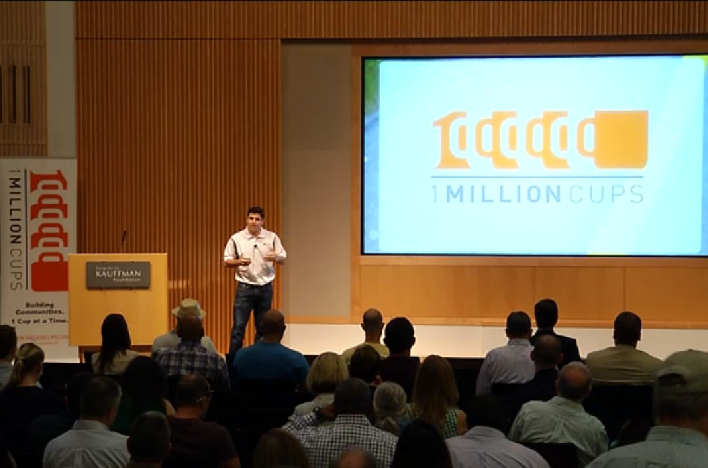Idle Smart has learned a lot since it was featured at 1 Million Cups two years, and on Wednesday, the Kansas City company shared four of its biggest lessons.
Idle Smart makes a device that basically works like a thermostat for semi trucks. Long-haul drivers often have to sleep in their vehicles. Idle Smart will automatically turn a truck’s engine on and off so that its temperature stays constant and comfortable. And that ends up saving huge amounts of fuel.
“By doing this, we’re saving about $3,000 per truck per year,” said Ryan Bennett, Idle Smart’s vice president of product and marketing.
While the company has attracted hundreds of fleet customers, building Idle Smart has been a constant learning process.
Lesson 1: Listen!
“The first, biggest lesson that we learned was listen to your customers,” Bennett said.
When Idle Smart went to market, it had a customer with problems that weren’t being solved by the market. The customer’s drivers were using their trucks’ batteries to power TVs, fridges and other devices, which led to dead batteries.
Other trucks were having problems starting in cold weather. The drivers would have to be away from the trucks for extended periods of time, and when they came back, the trucks wouldn’t start.
Idle Smart included solutions for both problems in its product—and those features have helped the company triple its market. In fact, one of the largest fleets in the world is now working with Idle Smart as a result.
All of that was possible because Idle Smart listened to its customer.
Lesson 2: You Can Go Your Own Way
Lesson No. 2? Proven methods won’t always work for everybody. A lot of people encouraged Idle Smart to rely on indirect sales through dealerships. Instead, the company chose to go the direct route, which allows it to build stronger relationships with clients and obtain more useful feedback. That feedback allows Idle Smart to continue refining its products.
Lesson 3: Help Customers Help Themselves
The third lesson, Bennett said, was to help customers help themselves. Idle Smart would follow up with customers about 60 days after installation to see how things were going. Too often, customers would say that drivers weren’t complaining, so they assumed everything was fine.
That led Idle Smart to develop a remote diagnostic tool. Every week, it shows how many gallons were saved over the previous week, and it identifies outliers in the fleet, so the customer can address any problems.
Lesson 4: Kill Variability Before It Kills You
And finally, variability kills, Bennett said. While Idle Smart’s average install time is three to four hours, that could range in some cases from 90 minutes up to 14 hours. The company has been working hard to remove the variability and make its processes as streamlined and predictable as possible.


